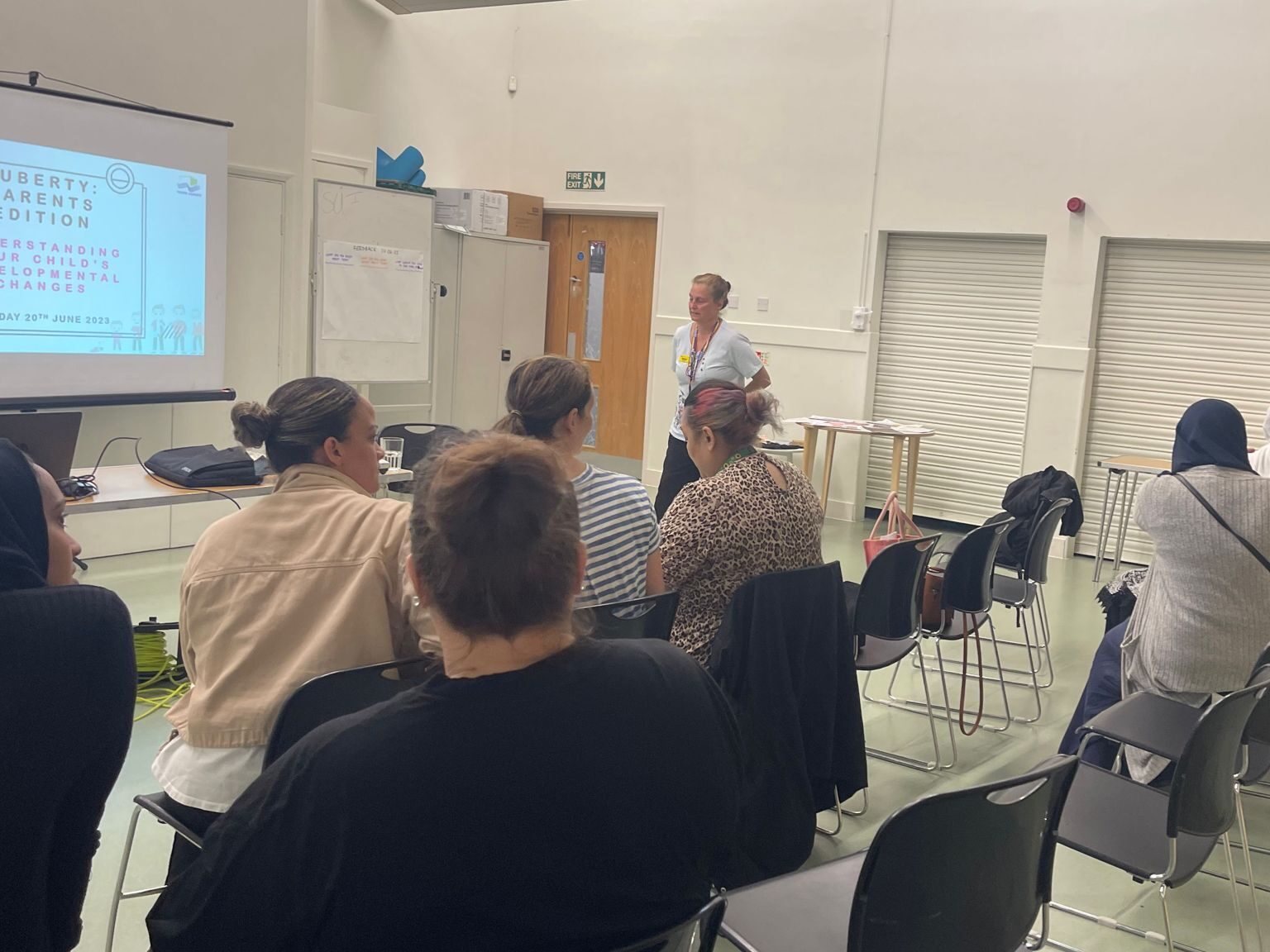Published on: July 25, 2023
Staff at our Compass Safe East service in London say a carefully thought out approach to parents of children with Special Educational Needs or Disabilities paid off.
Mariam Sheriff and Di Estwick had been invited to talk about puberty to the mums at a local community centre.
The service in Tower Hamlets, East London, provides free, confidential health and wellbeing support for children and young people who need support around drug and alcohol use and/or sexual health.
Di said she and Mariam were wary of “coming a cropper”. She said: “We decided the best approach would be the simplest one. Our presentation would be done purely through the puberty angle, because all young people will go through puberty irrespective of whether they have special needs or not.”
They gave the parents the space to apply the medical and psychological truths about how the mind and body changes in puberty to their own home circumstances.
Di said: “We started the presentation by saying that we acknowledge that they were definitely the experts with their children, and that we respected that.
“But we’d like to think we could offer them some support around puberty and specific questions. And that was our area of expertise.”
She explained: “We wanted to come across as human beings, not as professionals. This group of parents will have a lot of social services involvement and so could be all professionaled-out. They don’t need another professional to come in and start showing them how to do a job of parenting.”
The approach clearly relaxed parents who were able to laugh as they shared their personal experiences of their child going through puberty. It became a forum for discussion, Di explained, with parents talking among themselves and enlightening and reassuring each other.
The session, scheduled thirty minutes, lasted three hours.
Di said: “It was so relaxed – it caused hysterics really because the mums were talking about their children and some of the surprises that they’ve had to deal with, especially with very personal care for young people, it’s apparent that changes are happening. So that was why it was just a nice moment really. Yeah, it was really nice.”
Di concluded: “The feedback we got from the mums following the workshop was how refreshing it was. It was very plain speaking. That they didn’t feel patronised. That it gave them all the basic information they needed to then go away and tailor the needs of their individual children.”

Di’s words of wisdom for anyone presenting to parents
The informal, human approach
“Uncomplicated, but that doesn’t mean simplistic.”
“Start as you mean to go on – smile, make eye contact, be informal, mingle, show them you respect them and their experience.
“We went in and we mingled while they were having coffee before the presentation actually started and I think that made a big difference. It set the atmosphere for the rest of the presentation.
“Caring about it and listening as much as you’re speaking. If you come in believing that you know more than the people in the room, you are going to come a cropper, you are going to hear about it. And especially from those parents are used to campaigning and fighting for the rights of their children, they’re certainly not going to suffer fools gladly.
No “them and us” situation
“I feel when people come into a room and you’re set out with your PowerPoint, it’s very much them and us. I deliberately sat to the side when Mariam was presenting and she sat the other side, when I was speaking, so we were like almost a part of the audience. We were speaking with them not to them.
“Just encouraging the parents to speak. Once the right atmosphere is created, the parents feel valued enough to give their opinions and others will chip in. A lot of the discussion is between the parents. We were able to build that into the presentation.
“It was very laid back. We started the presentation by saying that we acknowledge that they were definitely the experts in their children, and that we respected that. But then we said we’d like to think we could offer them some support around puberty and specific questions. And that was our area of expertise.”
Uncomplicated messages
“I think it’s keeping the messages uncomplicated. The feedback from the parents was that they like the plain speaking. We could talk fairly graphically about the physical changes that their children would go through.

